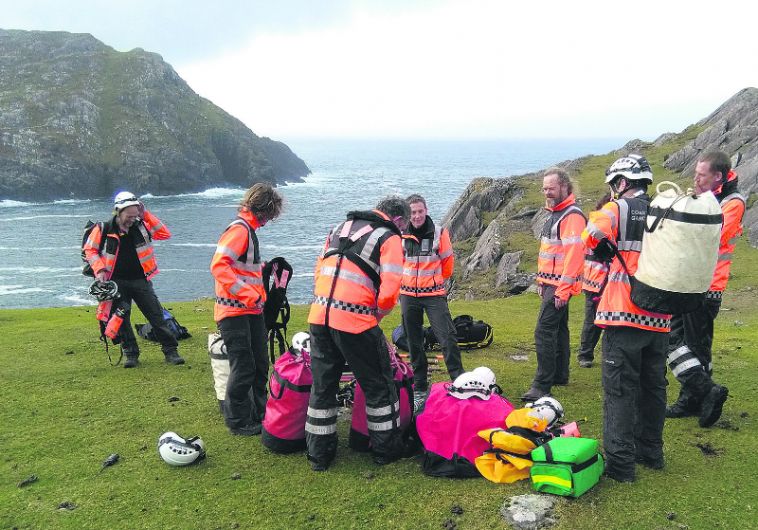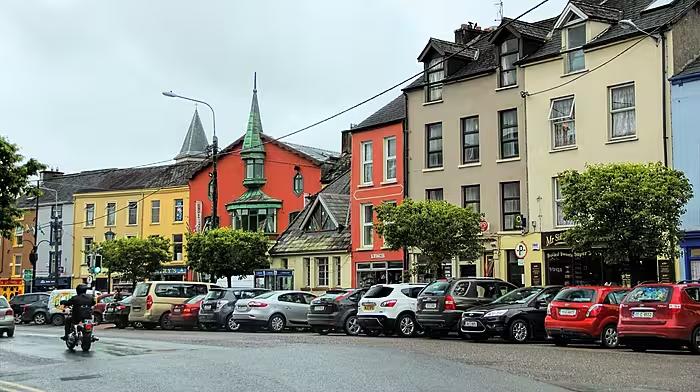Use of Personal Locator Beacons and Electronic Position Indicating Radio Beacons were responsible for saving the lives of five mariners in 2016, as well as the recovery of a single-crewed yacht that had become demasted off the south west coast and was subsequently towed into Castletownbere.
USE of Personal Locator Beacons and Electronic Position Indicating Radio Beacons were responsible for saving the lives of five mariners in 2016, as well as the recovery of a single-crewed yacht that had become demasted off the south west coast and was subsequently towed into Castletownbere.
In an end-of-year report, the Coast Guard said it had co-ordinated some 2,582 incidents through its three Marine Rescue Co-ordination Centres based in Valentia, Malin and its Dublin-based headquarters. And a total of 405 of the people who were rescued, or assisted, were categorised as ‘lives saved.’
The Coast Guard noted an increase in kayaking and surfing-related incidents with a total of 45 individual incidents requiring a response being recorded.
Coast Guard units and helicopters assisted with the recovery of 45 bodies as a result of drownings and other missing person searches.
The 43 Coast Guard volunteer units nationwide responded to 1,042 incidents by means of their search, rescue boat and cliff rescue services in addition to local community support during inclement weather or other emergencies.
These units also worked closely with Coast Guard helicopters in supervising helicopter landing sites and the transfer of casualties.
Overall, Coast Guard helicopters completed 886 missions, which included 36 casualty evacuations at sea.
Coast Guard volunteer units including, Dingle, Castletownbere, Killybegs and Westport participated in 86 mountain rescue missions in conjunction with Mountain Rescue Ireland, of which 77 involved casualty recovery by Coast Guard Helicopters.
In terms of drownings, the Coast Guard report confirmed that adult males continue to be the most vulnerable group.
The preliminary casualty assessment also showed that well over 50% of people requiring assistance were not wearing lifejackets.
The importance of prevention as the primary strategy in reducing loss of life at sea was stressed in the end of year report and in the Coast Guard’s recent awareness campaign: ‘No Lifejacket – No Excuse’.
In 2017, the Coast Guard will continue its awareness campaign with a new safety message based on the importance of retaining the ability to stay afloat coupled with a capacity to raise the alarm entitled: ‘Stay Afloat – Stay in Contact’.
The Coast Guard congratulated BIM on their safety initiative aimed at encouraging the fishing community to wear lifejackets at all times. The organisation also congratulated those involved in the leisure industry for their very high levels of compliance with basic water safety.
The Coast Guard continues to remind the public to raise the alarm. The organisation’s core message is: if you see anybody in trouble at sea, on the coast, or on cliffs, call 112 and ask for the Coast Guard.
Meanwhile, figures to hand for Castletownbere Coast Guard group shows that it had a busy year and responded to 27 incidents.
Three were related to boating incidents, four involved searches and there were five mountain or cliff rescues, as well as ten ‘medevacs,’ which involved transferring a casualty to an ambulance or helicopter.
The team also trained together every second week to practise and perfect their cliff rescue, navigation, First Aid and search skills, whilst the smaller boat crews met for their own rigorous training sessions.
Many members of the team also added to their expertise by attending training courses and events, such as boat and cliff courses, joint training with other agencies, and visits to local schools.
Between call out incidents, exercises and other activities, the crew of 17 gave a total of 2,574 voluntary hours during 2016.
Baltimore lifeboat’s first launch of 2017 happened shortly after 6pm on Monday, January 2nd, when the Coast Guard tasked the crew to investigate a possible flare sighting west of Tragumna.
The crew on board the ‘Alan Massey’ searched a large area from east of The Kedges to the south west of Baltimore harbour. But with nothing unusual to report, the Coast Guard gave the crew permission at 7.40pm to return to the lifeboat station.





